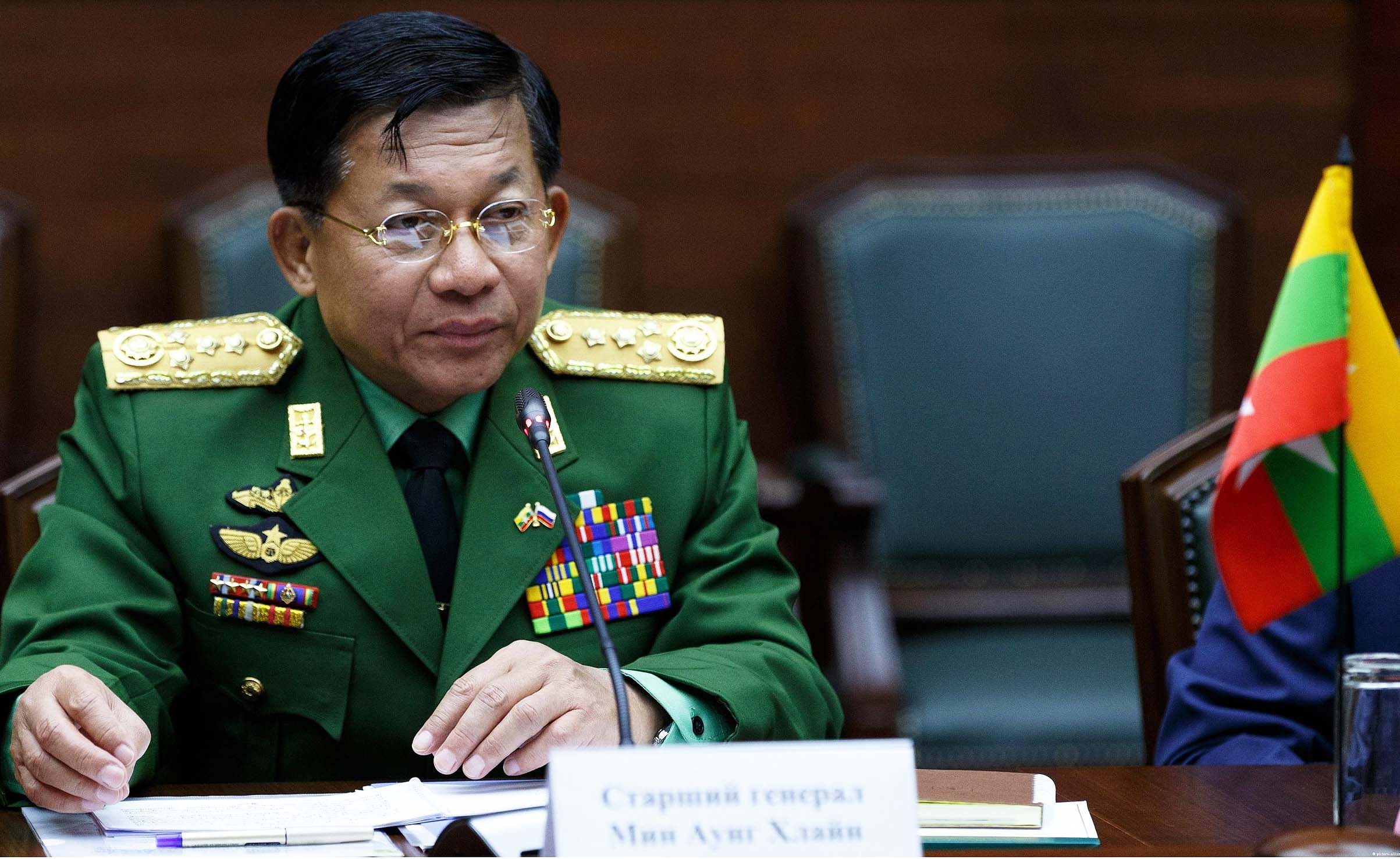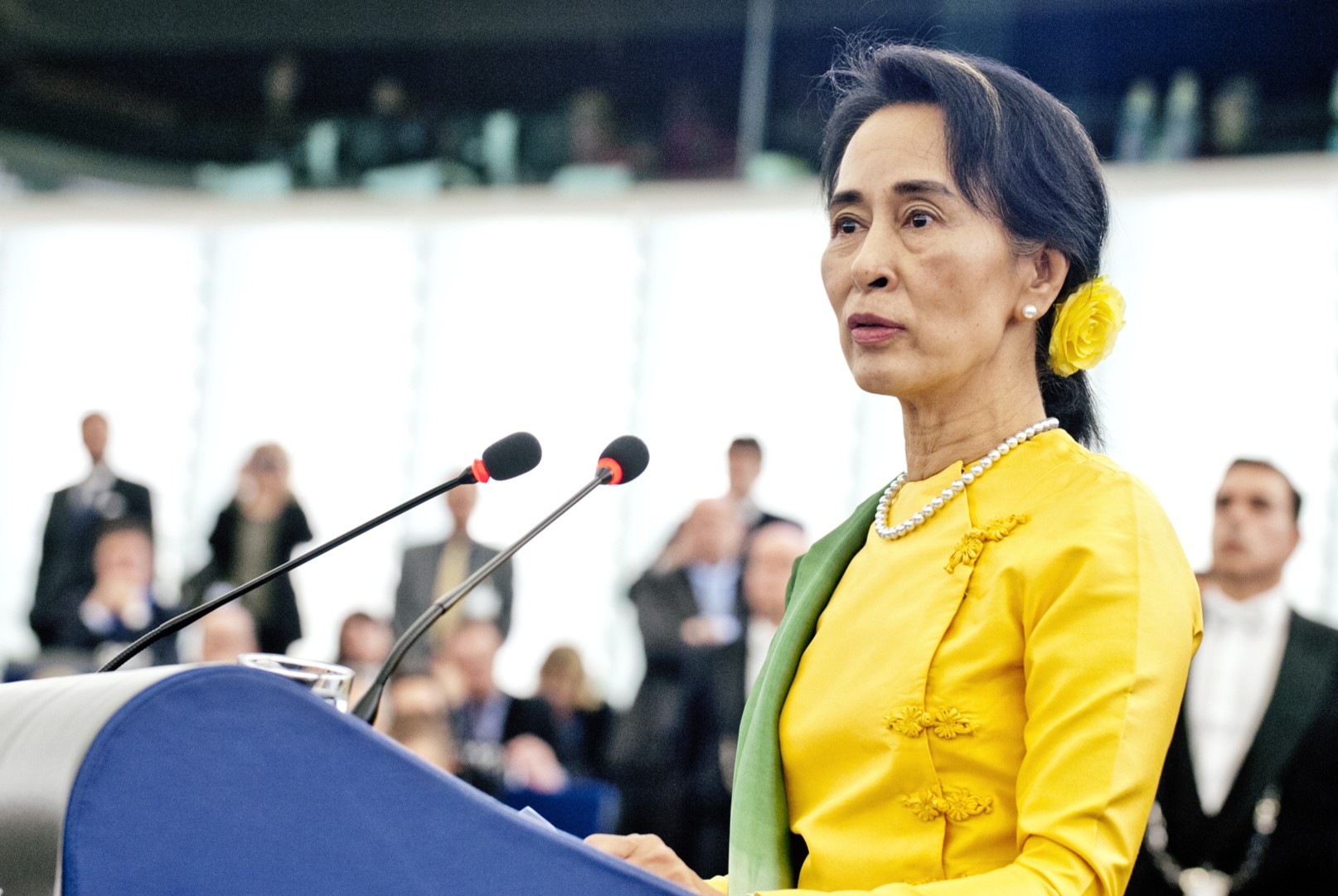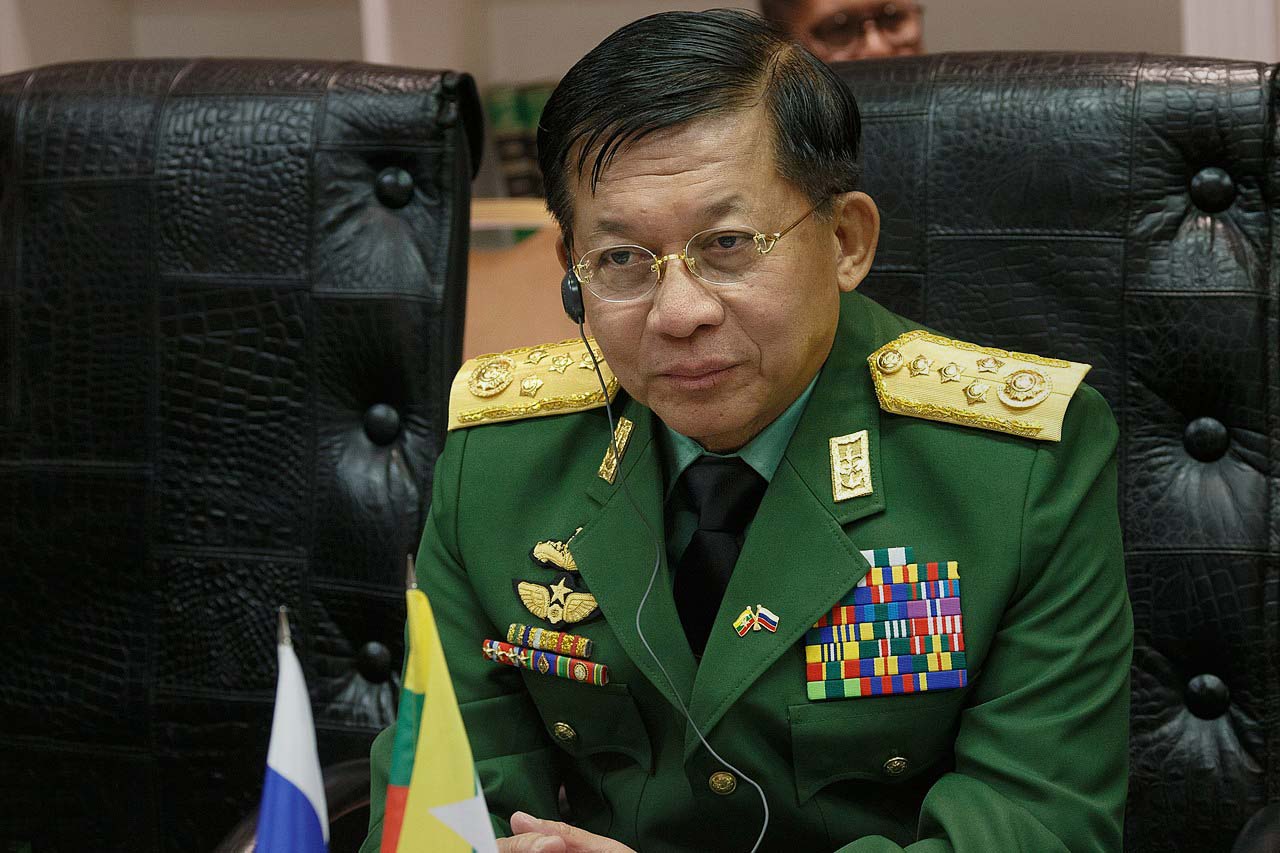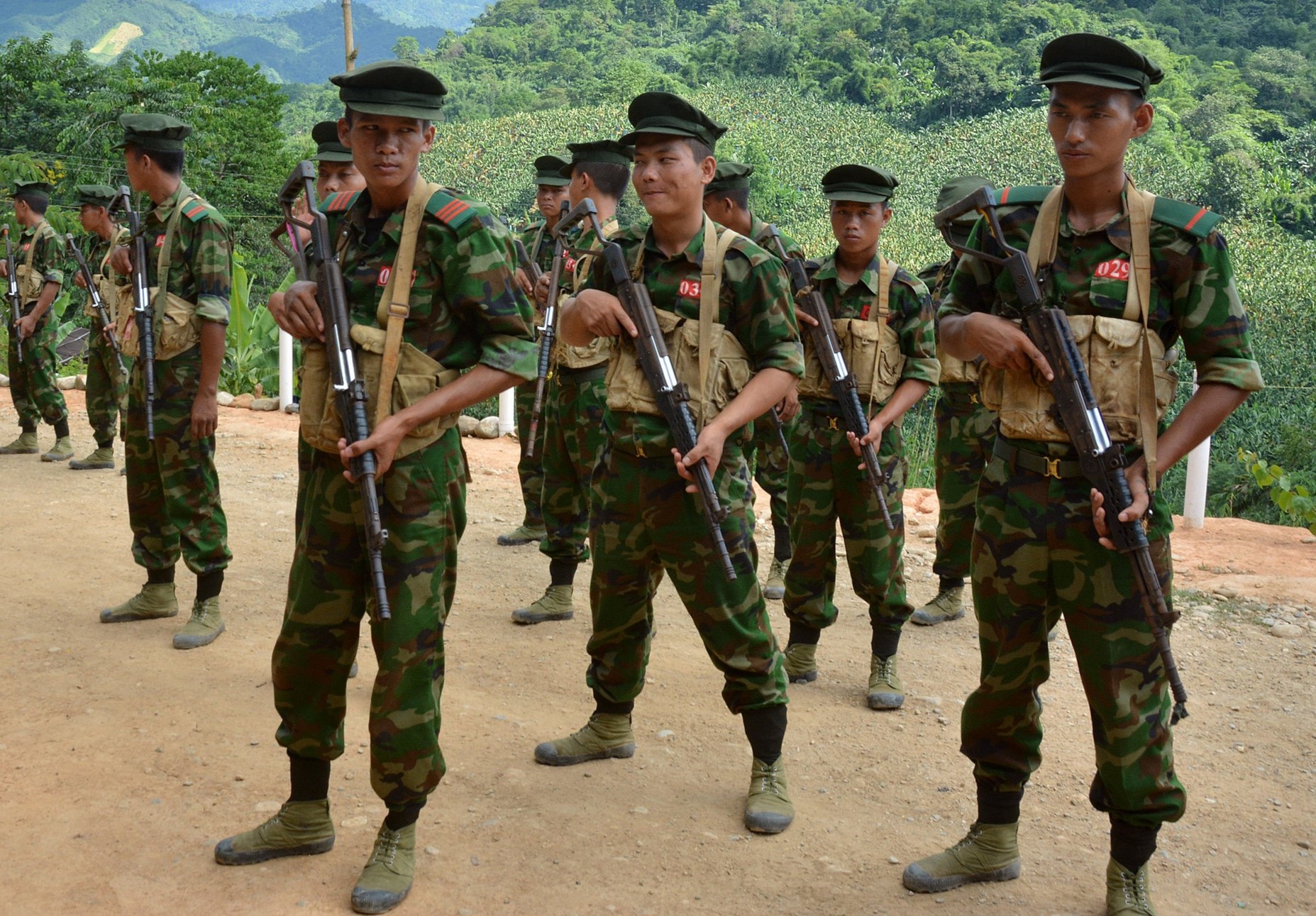It has been two years since Myanmar’s military coup in 2021, which removed the bourgeois liberal government of Aung San Suu Kyi. The masses rose up heroically against the coup, but the liberals’ betrayal led to a painful defeat. Today, the coup regime is creating hellish, barbarous conditions. From the free-falling economy, out-of-control organised crime and human trafficking in the hundreds of thousands, to the trigger-happy junta regime that faces potential civil war, capitalism has furnished yet another bloody case proving the need for socialism.
[Editor’s note: the situation in Myanmar is developing rapidly. This article was written several days ago and explains the processes at play, but already there have been new developments unfolding, which we will continue to report on.]
All layers of the working class are suffering significantly. Real wages have declined by at least 50 percent between 2017 and 2022. The regions that have traditionally enjoyed higher wages have seen the largest falls. This is against the backdrop of sharp inflation.
The price of cooking oil has increased three to four times, the price of rice has also tripled, and the price of diesel has increased from 700 Kyats per litre before the coup to 3,000 Kyats per litre after the coup.
The regime has tried to control prices of low quality saturated cooking oil and fuel by regulating market prices, but given the strength of the dollar, the weakness of the Myanmar Kyat and the $1 billion USD budget deficit, this has proven impossible. All it has achieved is to aggravate shortages.
The junta has shown desperation in its attempt to lay its hands on dollars, even threatening not to renew the passports of emigrants unless they prove they have paid their taxes.
Meanwhile, agricultural production has plummeted as a result of the high cost of inputs (e.g. fertiliser price hikes) and on account of military operations, that have seen rural peasants slaughtered, and the burning down of their houses as well as their instruments of labour including domestic animals. Moreover, the high level of unemployment has fuelled high rates of (illegal) emigration to neighbouring countries, mainly to Thailand and China.
Foreign Direct Investment (FDI) has completely dwindled compared to pre-pandemic levels. Power outages, the high cost of importing some semi-finished raw materials, increased oil and gas prices, and not least of all, the chaos resulting from western sanctions: all these factors, among others, are combining to push down industrial growth and to push up unemployment.
Aside from unemployment, chaos in basic services persistently disrupts the lives of ordinary people. Industrial and residential zones alike are suffering from lengthening blackouts. The regime’s regular attacks against, closure of and even bombing of hospitals, as many health workers are involved in opposition movements, has tanked the healthcare system. This has led to a looming crisis of treatments to diseases like HIV and many others.
Crime and slavery
Amidst the chaos, crime has grown significantly in Myanmar. Many parts of the country are now havens for internet and telecom scam enterprises, whose activities have defrauded victims around the world (many of whom are Chinese) of sums in the tens of billions of dollars. The problem is so severe that it was specifically discussed at the ASEAN summit in September.
Worse still, most of those conducting these scams were actually trafficked captives of the criminal gangs. According to the United Nations, as many as 120,000 people inside Myanmar today were trafficked and forced to conduct scam calls on behalf of the criminal gangs. In some cases, those who refuse to do the calls or were otherwise deemed worthless by the gangs, were condemned to forced labour in mines, or have even had their organs harvested!
The junta has been actively complicit in this human trafficking taking on a horrifying scale within its domain. For example, the junta rules the Kokang region of the Shan state through four ethnic-Chinese crime families, who in turn have made the area a hotbed of scams and trafficking. Needless to say, the cash-strapped junta – at least some among them – are enjoying kickbacks from the billions that the trafficked victims have hauled in from the gangsters.
That crime has infected Burmese society to such a degree is only a symptom of a profound crisis that is unfolding, and it is now impacting the top of the regime in more ways than one.
Cracks at the top
 Powerless in the face of deteriorating contradictions in society, divisions will inevitably emerge within the ruling military dictatorship / Image: Vadim Savitsky, Wikimedia Commons
Powerless in the face of deteriorating contradictions in society, divisions will inevitably emerge within the ruling military dictatorship / Image: Vadim Savitsky, Wikimedia Commons
As this crisis unfolds, the junta seems to be struggling with deep internal rifts. Former military council member Lt-Gen Moe Myint Tun was sentenced by a military court to life imprisonment for treason and many other crimes. Moe Myint Tun was one of junta chief Min Aung Hlaing’s most trusted disciples and headed the regime’s Myanmar Investment Commission, Foreign Exchange Supervisory Committee, and Central Committee on Ensuring Smooth Flow of Trade and Goods.
He was the fifth-highest ranking member of the 18-member military council formed after the 2021 coup, but was removed from the administration following his arrest in September.
That such a high ranking member of the junta saw such a spectacular fall from grace has naturally caught many by surprise. We may not know the real reason behind his removal for some time to come, but the charge of treason is particularly notable.
Powerless in the face of deteriorating contradictions in society, divisions will inevitably emerge within the ruling military dictatorship, beginning with differences among the generals themselves over how to proceed forward. This is a classic indicator of social explosions to come. Indeed, it is often cracks at the top that propel the masses forward.
Many countries – above all China – are deeply worried about the growing instability in Myanmar. If divisions among the generals widen, we may very well see attempts at foreign powers to intervene. As we have said in July 2021:
“If, at some stage, continued military rule becomes untenable, some of these officers may become more amenable to outside pressures from a power such as China. In the coming period, these foreign powers may come to favour a wing of the junta over ones that they view as too unreliable.”
This perspective is becoming more likely by the day.
Brutality
Whatever divisions there may be among the army tops, they are united in their propensity towards extreme brutality against any and all opposition.
The junta’s forces have been launching military operations in Middle Burma against the independently organised Local Defence Forces (LDF) and the People’s Defence Forces (PDF), the armed militias organised by former participants of the mass movement against the coup. Air strikes are frequently called whenever the military feels pinned down or trapped by the guerrillas. This preferred tactic is becoming increasingly common. This year, the New York Times estimated that the Burmese junta has conducted an average of 30 airstrikes per month. In other words, civilians in Myanmar are being bombed almost every single day.
At times, the junta has carried out brutal war crimes without any preceding provocation or armed clash, as in the case of a recent massacre near the China-Myanmar border:
“It was just before midnight on October 9 when explosives rained down on Mung Lai Hkyet, a village in Myanmar’s northern Kachin State where hundreds of displaced civilians were sheltering. At least 28 civilians were killed, including 10 women, 10 girls, seven men, and one 3-year-old boy. More than 60 were injured.”
Much like the state of Israel, the junta does not hesitate to kill children. Myanmar Now reports that the junta has killed nearly 500 children since seizing power more than two and a half years ago. This number is only based on verified reports, and the real number may be far higher given the conduct of the regime.
Aside from these atrocities, the military is making cruel yet bizarre moves. In the battleground that is Shan state, it is reported that the military “rescued” over 500 foreigners who were trafficked there by criminals, only to send them to army camps to be used as forced labourers and human shields.
Anaemic liberal opposition
On the other side, the various armed groups under the command of the National Unity Government (NUG) – formed as a government-in-exile by the liberals after the 2021 coup – are becoming ever-more degenerate or bankrupt. Some local groups without arms or logistical support from the NUG are in tatters. An unnecessary loss of life of both civilians and resistance forces has been caused by a combination of rampant corruption at the top level of the NUG, the poorly armed forces at the ground level, and the superior forces of the junta with the support of the air force.
 The military is well aware that an election might well lead to the masses rallying once more behind the NUG and Aung San Suu Kyi / Image: European Parliament, Flickr
The military is well aware that an election might well lead to the masses rallying once more behind the NUG and Aung San Suu Kyi / Image: European Parliament, Flickr
This is a far cry from the days when the NUG announced its formation and the PDFs began springing up in many places, when, at least among the ranks of the PDF, there was a certain confidence in the armed struggle.
However, as we’ve explained repeatedly, the NUG suffered from a fundamental political weakness of being bourgeois liberals. They fundamentally share with the military clique the same interest in defending Burmese capitalism. With them at the leadership of this armed resistance, and given their lack of interest in using these forces to organise the working class to take over society, the armed resistance was inevitably going to go nowhere.
This is exactly what has happened, and most people have become disillusioned with the liberal leadership and exhausted with the so-called “armed revolution”. Since the armed struggle began, the regime’s “three-alls policy” – “kill all, burn all, loot all” – has led to more than one million being internally displaced, it has led to famine, and the wiping out of numerous households.
The liberal bourgeois leadership attempts to shore up its position by constantly sowing illusions and spreading false hopes that military victory is imminent. Given their tattered state, however, this is wearing thin.
The military is well aware that an election might well lead to the masses rallying once more behind the NUG and Aung San Suu Kyi, who is now in prison, but the NUG has nothing it can offer the generals anymore. There is therefore no prospect of the junta calling a ‘general election’, despite what they once promised. The whole political situation has reached a stalemate.
Contradictions with China
As we have said on many occasions previously, the imperialist power that dominates over Myanmar is China. The West has more or less retreated. Both the bourgeois liberals led by Aung San Suu Kyi and the military are deeply in favour of alignment with China, as investments from China and Hong Kong make up around 38 percent of foreign investments in the country. The Yangon branch of the Chinese state bank ICBC is actively promoting the usage of the RMB in Myanmar’s foreign trade. The West has been decisively edged out.
Chinese imperialism has significant interests in Myanmar, not only as a bordering country, but also as a direct route to the Indian Ocean. Myanmar is also an important counterbalance against Vietnam, China’s primary competitor in the Indochina Peninsula.
The Chinese regime was unhappy with the coup, as it was deeply destabilising and risked spreading chaos into China, where the masses are in growing ferment. As the military clearly triumphed over the NUG, however, China had no choice but to support the military in the hope of stabilising the country once more and safeguarding Chinese capitalist interests, especially the Belt and Road projects.
While the Burmese junta remains by and large deferential to Beijing, the latter has put a number of checks in place as a warning to the regime, such as the United Wa Army which is openly funded and propped up by China, and through which it indirectly supports other large ethnic militias of its choice, at various times and for its own interests.
But clearly the junta has not only failed to keep things under control, it has proven powerless to stop criminal activities from festering in Myanmar. Reportedly, the centres of these activities are either in the northern regions that border China or at the KK Park – a commercial compound on the Thai border that is run by Chinese capitalist She Lun Kai. Whilst he is suspected on the one hand of engaging in criminal activity that is irritating the Chinese regime… his other project in Myanmar was listed as a key project of the Belt and Road Initiative in the country!
It would appear that China has lost patience with the junta’s handle on the situation in the north of the country. This year, after the junta’s Commerce Minister publicly downplayed China’s request to curb cybercrimes, China directly conducted police operations in Myanmar’s Shan State in September, resulting in 269 arrests.
Subsequently, the regional ethnic militias in the north – three of which formed the Three Brotherhood Alliance, with the ethnic-Chinese Myanmar National Democratic Alliance Army (MNDAA) at its head – suddenly launched an offensive in Shan State under the banner of “wiping out scam operations”. In effect, this meant deposing the four crimelords who rule the region in the name of the military, which is itself deeply embedded in the criminal activity that China wants to wipe out.
At the time of writing, the rebels have captured over 138 bases from the junta in the area – a feat achieved thanks to the fact that the rebels have mysteriously acquired advanced weaponry that they’ve never previously had access to. Ten more militias have announced that they have joined the Three Brotherhood Alliance.
 Ultimately the Myanmar regime is powerless to disobey China / Image: Vadim Savitsky, Wikimedia Commons
Ultimately the Myanmar regime is powerless to disobey China / Image: Vadim Savitsky, Wikimedia Commons
While the armed rebellion is an affront to the junta, it seems that it has gained China’s sympathy if not indirect support. The MNDAA has long been armed and trained by China’s proxy, the United Wa Army, and Chinese state media has been actively reporting on the Myanmar junta’s losses in the Shan state.
Of course, ultimately the Myanmar regime is powerless to disobey China. On the other hand, China’s patience with the junta is rapidly running out, and it may very well look to different factions within the army or other forces to prop up as a check or even replace the current clique led by General Min Aung Hlaing.
Class struggle being prepared
Against the backdrop of economic crisis, brutal dictatorship, war and a lack of leadership, the Burmese working class in the cities are facing conditions that once again push them towards struggle.
A notable example was a workers’ occupation of a Chinese-owned garment factory in Yangon in early October, when the management informed the workers that the factory would be closed down after only a year and a half in operation.
Given that the military smashed the trade unions after the coup, this struggle is a heroic one. It is also not a rare occurrence. Recent months have seen a number of strikes and union organising efforts from below in the cities.
The initial period whereby the working class once more collects its strength will not be a smooth process. However, it will eventually happen. The conditions do not allow for the proletariat of Myanmar to sit by indefinitely while barbarism creeps in around them. At one point or other, they will begin to move once more.
The most urgent task for communists in this period is to refound our forces on the basis of correct theory. The past period has exposed the inherently traitorous nature of the NUG liberals and reformists, but illusions in guerrilla war as a substitute for class struggle, or engaging in this or that popular front with the liberals, still abound among the youth. The supporters of The Struggle magazine, the Burmese supporters of the ideas of the International Marxist Tendency, will steadfastly champion Marxist ideas in the face of these theoretical errors. We invite all sincere revolutionary youths to join us.

